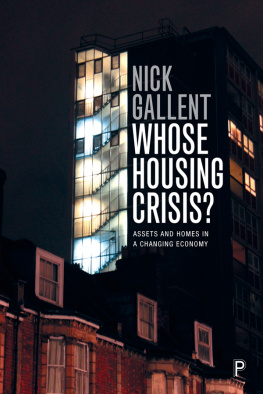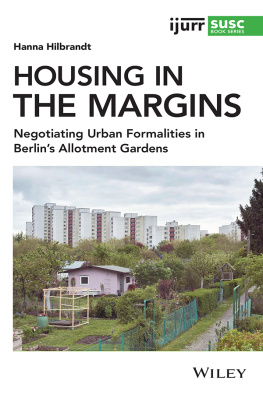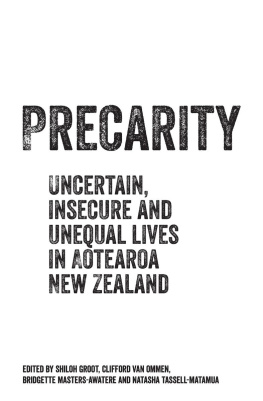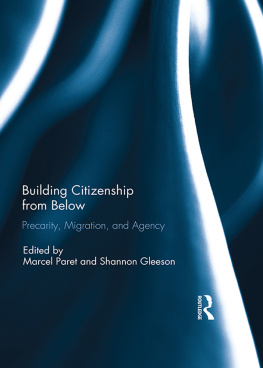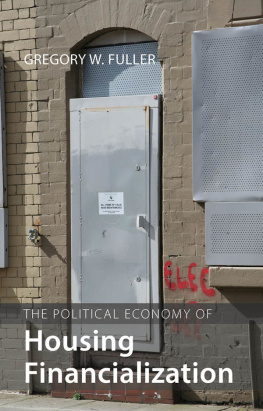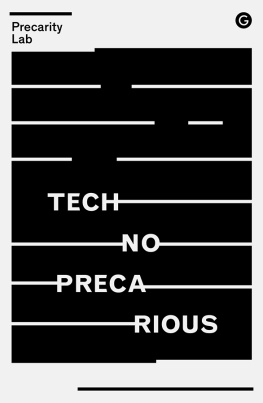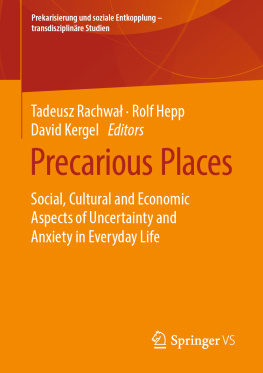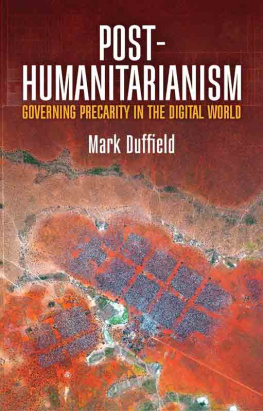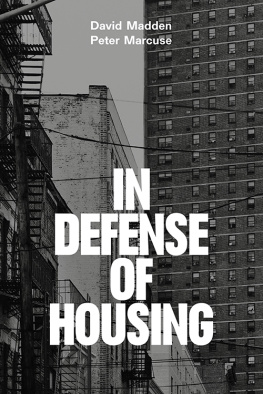About the author
Dr Ella Harris is currently a Leverhulme Fellow in the Department of Geography at Birkbeck, University of London. She has academic expertise in urban cultures of the recession/austerity era as well as in interactive documentary as a research method. She has published widely on pop-up culture, housing precarity, interactive documentary and compensatory cultures. She runs the blog Crisis Cultures ( www.crisiscultures.co.uk ). Outside of work, Ella competes nationally and internationally for Miguels Amateur Boxing Club.
REBRANDING
PRECARITY
Pop-Up Culture as the
Seductive New Normal
ELLA HARRIS
Rebranding Precarity: Pop-Up Culture as the Seductive New Normal was first published in 2020 by Zed Books Ltd, The Foundry, 17 Oval Way, London SE11 5RR, UK.
www.zedbooks.net
Copyright Ella Harris 2020
The right of Ella Harris to be identified as the author of this work has been asserted by her in accordance with the Copyright, Designs and Patents Act, 1988
Typeset in Galliard and Garamond by Swales & Willis Ltd, Exeter, Devon
Index by John Barker
Printed and bound by CPI Group (UK) Ltd, Croydon, CR0 4YY
All rights reserved. No part of this publication may be reproduced, stored in a retrieval system or transmitted in any form or by any means, electronic, mechanical, photocopying or otherwise, without the prior permission of Zed Books Ltd.
A catalogue record for this book is available from the British Library
ISBN 978-1-78699-981-8 hb
ISBN 978-1-78699-982-5 pb
ISBN 978-1-78699-985-6 pdf
ISBN 978-1-78699-983-2 epub
ISBN 978-1-78699-984-9 mobi
Contents
This book wouldnt have been possible without the support and input of colleagues, friends and family. Im infinitely grateful to Beckie Coleman, my mentor while writing the book, and Harriet Hawkins, my PhD supervisor, for their enthusiasm towards my work and their expert guidance in shaping my ideas. Id also like to thank my PhD examiners, Ben Anderson and Ben Campkin, whose insightful and generous feedback on my doctoral thesis guided the directions this book has taken. I didnt believe beforehand that it was possible to genuinely enjoy a PhD viva!
The research informing the books last chapter was conducted collaboratively with Mel Nowicki and Katherine Brickell, and its arguments belong to us as a team. Im hugely grateful to Katherine for setting up the opportunities, practical and intellectual, that allowed me to expand my research into the areas of home and housing. Thanking Mel would be not only insufficient, but also a kind of category error. Weve worked together throughout our academic careers, basically since day one of our PhDs. The way I think about the world, in this book and beyond, is inextricable from the ways weve thought and written about it together.
Id also like to thank all the research participants who kindly gave their time and shared their experiences with me.
The book is dedicated to my family Nigel Peet, Jenny, Oliver, Mia, Nina and Vivi Harris for their support, encouragement and in some cases (Mia!) blind faith in my abilities.
Lastly, I cant leave out the squad and coaching team at Miguels Amateur Boxing Club in Brixton, South London. Boxing for Miguels ABC motivates me, inspires me and shows me what Im capable of. And most importantly in the context of this book, being a Miguels Mechanic has taught me what a life-affirming thing an urban community can and should be.
Note : Names of research participants have been changed to increase anonymity.
Its spring 2012 and, typically for England, still cold. Me, an intern and two staff from the fairly recently founded company 3Space shuffle through the oddly deserted market streets of Colchester, Essex. We clutch our coffees tightly, feeling a little unnerved at being this far out of London. I think its round this way, Amy, the senior staff member, says, taking a sharp turn.
The four of us squeeze through a private alleyway, using our shoes to push aside crisp packets and beer bottles that have collected since its been disused.
Were at the back entrance. Amy has the key already. After a couple of goes, she manages to open up. We venture into the dark, chilly corridor: manky carpets, walls in desperate need of a repaint, bathrooms that look like they havent seen running water for a while.
In the dingy main room, large floor-to-ceiling windows might be letting in some light and warmth from the high street if they werent boarded up. There are huge piles of coat hangers and smaller collections of shelving units, screws and ambiguous items strewn across the floor. The JJB Sports signage on the walls is already peeling off a little.
Wow, says Amy, this is going to be a really great space.
There is broad consensus that we are living in precarious times. The effects of the 2008 financial crash are still being felt globally and have been entrenched and exacerbated since by widespread austerity measures. Inequality is rising, labour insecurity is worsening, and welfare is being continually retracted, leaving millions on the breadline. The housing crisis is also intensifying, especially in major cities of the Global North such as San Francisco or Dublin. Economic insecurity has been coupled with political turbulence, including the capricious presidency of Donald Trump in the US and the chaos ensuing from the UKs vote to leave the EU. The spectre of the now inevitable, disastrous effects of climate change adds to the picture of volatility and decline. In this context, precarity is a new normal: both a personal, lived experience and a collective structure-of-feeling, a palpable atmosphere that most of us now inhabit (Anderson, 2014; Berlant, 2011).
In London, as in cities across the world, the effects of the crash were visible in the urban fabric in its aftermath. Buildings and sites were left vacant as businesses shut down and developments ground to a halt. In 2009, 10 per cent of commercial property in the UK capital was empty (Savills World Research, 2014). Boarded-up shops and fenced-off construction sites were visual reminders of the sudden slump in fortunes. At the same time, funding cuts from central and local governments left charities, creative groups and small businesses without capital or opportunities. The now ubiquitous pop-up culture emerged from this state of affairs.
Also referred to as meanwhile use, pop-up was promoted as a way to fill up derelict and empty sites and buildings while also providing free or cheap space to small groups who could animate urban areas again. The now well-rehearsed pop-up format involves loaning buildings and sites to users on a short-term basis. Some pop-ups are one-off uses of a given space while others move nomadically between sites as and when they become available. The introduction of the Meanwhile Use Lease Contract in 2009 codified this practice and gave owners of vacant properties in the UK exemption from business rates if they loaned their empty premises temporarily to non-profit groups. 3Space, who feature in the vignette above, were one charity that formed, in 2010, as a direct response to the increase in vacant commercial premises brought about by the financial crisis (3Space, 2019). They work to manage vacant properties for commercial landlords, bringing in charities that can make use of the spaces on short-term contracts until a long-term occupier is found.


